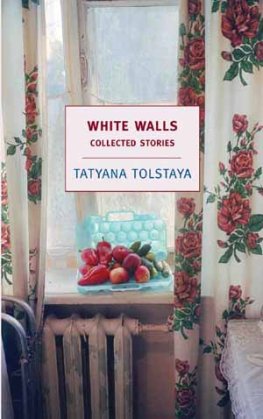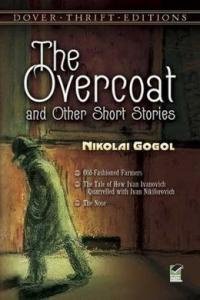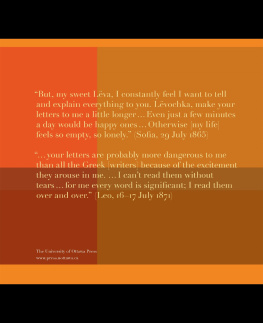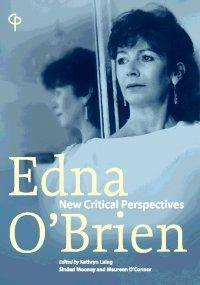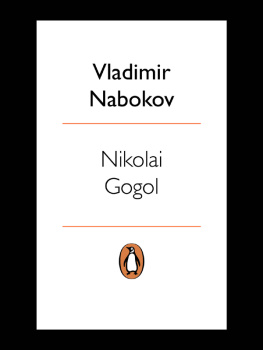Tatyana Tolstaya
WHITE WALLS
Collected Stories
Translated by
Antonina W. Bouis
Jamey Gambrell
The other kids get to go out by themselves, but we have to go with Maryvanna!
When you get to be seven, youll get to go out alone. And you dont say disgusting about an elderly person. You should be grateful to Maria Ivanovna for spending time with you.
She doesnt watch us on purpose! And were going to get run over, I know we are! And in the park she talks to all the old women and complains about us. And she says: spirit of contradiction.
But you really do your best to spite her, dont you?
And Ill go on doing it! Im going to tell all those stupid old women how dont you do and bad-bye.
Shame on you! You must have respect for your elders! Dont be rude, listen to what they say: theyre older and know more than you.
I do listen! All Maryvanna talks about is her uncle.
And what does she say about him?
That he hanged himself because he had a bad bladder. And that before that he was run over by the wheel of fortune. Because he was in debt and had crossed the street improperly.
Small, heavyset, and short of breath, Maryvanna hates us and we hate her. We hate the hat with a veil, the holey glove, the dried pieces of sand cookies she feeds to the pigeons, and we stamp our feet at those pigeons to scare them off. Maryvanna takes us out every day for four hours, reads books to us, and tries to converse in Frenchbasically, thats what she is hired for. Because our own dear beloved Nanny Grusha, who lives with us, doesnt know any foreign languages, and doesnt go outside anymore, and has trouble getting around. Pushkin loved her very much, too, and wrote about her and called her my ancient dove. And he didnt write anything about Maryvanna. And if he had, hed have written my fat piggy.
But whats amazingabsolutely impossible to imagineis that Maryvanna was the beloved nanny of a now grownup girl. And Maryvanna brings up that girl, Katya, every day. She didnt stick out her tongue, didnt pick her nose, ate everything on her plate, and hugged and kissed Maryvannashe was crazy.
At night, in bed, my sister and I make up conversations between Maryvanna and the obedient Katya.
Finish up the worms, dear Katya.
With pleasure, sweet Maryvanna.
Eat a marinated frog, child.
I already have. Please give me some more mashed mice.
In the park that Maryvanna called the boulevard, pale Leningrad girls dig in the darkened autumn sand, listening to adults talk. Maryvanna, quickly making the acquaintance of some old lady in a hat, takes out her stiff old photographs: herself and Uncle leaning against a grand piano and behind them a waterfall. Could that white airy creature in lace gloves be buried somewhere in the bowels of that gasping fat? He was father and mother to me and wanted me to call him simply Georges. He educated me, he brought me out into society. Those pearlsyou cant see them well herewere a gift from him. He loved me madly, madly. See how handsome he is here? And here were in Piatigorsk. Thats my friend Yulya. And here were having tea in the garden.
Marvelous pictures. Is that Yulya too?
No, thats Zinaida. Georges girlfriend. Shes the one who bankrupted him. He was a gambler.
Oh, so thats it.
Yes. I should throw away this picture, but I cant. Its all I have left of him. And his poemshe was a poet.
You dont say.
Yes, yes, a wonderful poet. There arent any like him nowadays. So romantic, a bit of a mystic
The old lady, silly twit, listens with her mouth open and smiles dreamily, looking at me. She shouldnt stare at me. I stick out my tongue. Maryvanna, shutting her eyes in shame, whispers hatefully, Hideous creature!
That night shell read her uncles poetry to me again:
Nanny, who screamed so loudly outside,
Flashing past the window,
Creaking the porch door,
Sighing under the bed?
Sleep, dont worry,
God will watch over you,
Those were ravens calling,
Flying to the cemetery.
Nanny, who touched the candle,
Whos scratching in the corner,
Whos stretched in a black shadow
On the floor from the door?
Sleep, child, dont worry,
The door is strong, the fence is high,
The thief wont escape the block
The axe will thud in the night.
Nanny, whos breathing down my back,
Whos invisible and climbing
Ever closer up my Crumpled bed sheet?
Oh child, dont frown
Wipe your tears and dont cry.
The ropes are pulled tight,
The executioner knows his job.
Well, after hearing a poem like that, whod be brave enough to lower her feet from the bed, to use the potty, say? Everybody knows that under the bed, near the wall, is the Snake: in lace-up shoes, cap, gloves, motorcycle goggles, and holding a crook in his hand. The Snake isnt there during the day, but he coagulates by night from twilight stuff and waits very quietly: who will dare lower a leg? And out comes the crook! Hes unlikely to eat you, but hell pull you in and shove you under the plinth, and youll fall endlessly, under the floor, between the dusty partitions. The room is guarded by other species of nocturnal creatures: the fragile and translucent Dry One, weak but terrible, who stands all night in the closet and in the morning goes into the cracks. Behind the peeling wallpaper are Indrik and Hindrik: one is greenish and the other gray, and they both run fast and have many feet. And in the corner on the floor is a rectangle of copper grating, and under that a black abyss: ventilation. Its dangerous to approach even in the daytime; the Eyes stare out, without blinking. Yes, the most horrible is the nameless one who is always behind me, almost touching my hair (Uncle knows!). Many times he plans to reach out, but he keeps missing his chance and slowly, sadly, lowers his incorporeal hands. I wrap myself tight in the blanket, only my nose sticking outthey dont attack from the front.
Having frightened me with her uncles poems, Maryvanna goes back to her place in a communal apartment, where, besides her, live Iraida Anatolyevna with her diabetes, and dusty Sonya, and the Badylovs, who were deprived of parental rights, and the hanged uncleAnd shell be back tomorrow if we dont get sick. We often are.
Many times, 104-degree flus would scream and bang at my ears, banging on red drums, surrounding me from eight sides and, swirling wildly, project a delirious film, always the same: a wooden honeycomb filling up with three-digit numbers; more numbers, louder noise, more urgent drumsall the cells will be filled now, just a little time left. My heart cant take any more, itll burstbut its been postponed, Ive been released, forgiven, the honeycomb taken away, a round loaf of bread with a nasty smile runs along an airfield on spindly legsand it grows quiet except for tiny planes like dots of bugs which scurry along the pink sky, carrying away the black cloak of fever in their claws. Its passed.
Shake the crumbs from my sheet, cool my pillow, smooth my blanket so that there isnt a single wrinkle, otherwise the planes with claws will be back. Without thoughts, without desires, I lie on my back, in the coolness, in semidarknessa half-hours breather between two attacks of the drummers. A fan of light crosses the ceiling from corner to corner, then another fan, and another. The cars have their headlights on, the evening has descended, a rug of light has been pushed under the door into the next room: theyre having tea there, the orange lamp shade is glowing, and one of the adults is making forbidden braids in its fringe, ruining it. Before the planes come back, I can leave my corporeal shell pounding with fever among the cast-iron sheets and mentally slip beyond the doorlong nightgown, cold slipperssit invisibly at the table (Id forgotten this cup over the week) and, squinting, travel by gaze along the orange humps of the shade. The lamp shade is young and skittish, it isnt used to me yetPapa and I got it only recently at the flea market.

